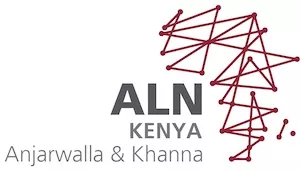Introduction
On 22 September 2005, the Tanzanian and South African (SA) Governments concluded a Double Tax Agreement (DTA), whose purpose was to ensure resident persons and resident companies avoid double taxation and prevent fiscal evasion with respect to income taxes. The DTA entered into force on 15 June 2007 and subsequently became effective on 1 August 2007.
Article 2 of the DTA provides the types of taxes covered under the DTA which include in case of SA: the normal tax, the secondary tax on companies and withholding tax on royalties while in the case of Tanzania, the DTA covers income tax and withholding taxes covered under the Income Tax Act, 2004. Pursuant to the DTA, companies which are resident of the Contracting states (SA and Tanzania) enjoy various treaty benefits which include reduced withholding tax rates on specific payments made in a contracting state.
Over the years, tax disputes have increasingly emerged between various taxpayers and the Tanzania Revenue Authority in relation to the interpretation of the SA- Tanzania DTA. The disputes have been centered upon interpretation of Articles 7 and 20 of the DTA which provide for taxation of business profits and other income respectively.
Primarily, the key issue for determination in the aforementioned tax disputes has been whether service fees derived by a SA entity for provision of services to a Tanzanian entity should form part of business profits as provided for under Article 7 of the DTA which is not taxable in Tanzania or whether the fees fall under Article 20 of the DTA and thus subject to withholding tax.
The Tax Revenue Appeals Tribunal (the Tribunal) has in two different cases namely, Kilombero Sugar Company Limited versus Commissioner General, 2016 (Kilombero case) and Tullow Tanzania BV Versus the Commissioner General, 2018 (Tullow case) now pronounced itself on this issue holding that service fee paid by a Tanzania resident entity to a SA entity should be subject to tax pursuant to Article 20 of the DTA and not Article 7 of the DTA.
For purposes of this tax alert, we will focus on the determination of the Tribunal in the Kilombero case.
Brief facts of the case
Kilombero Sugar Company Limited (hereinafter referred to as Kilombero) is a company incorporated in Tanzania whose principal activity is sugar cane farming and sugar production. In furtherance of its business, Kilombero entered into an agreement with Illovo Project Services Limited (IPS), a South African Company for provision of operational and technical services. Pursuant to the agreement, IPS was to provide operational and technical services for the management and control of the Kilombero's factories and agricultural land from time to time and in return Kilombero was to pay fixed fees of USD 30,000 per month for the operational and management services provided by IPS.
Between 2009 and 2011, the Tanzania Revenue Authority (the TRA) audited the tax affairs of Kilombero following which the TRA issued withholding tax certificates to Kilombero demanding payment of withholding tax on reimbursements paid to IPS. Kilombero was aggrieved by the TRA's decision and thus unsuccessfully filed an appeal to the Tax Revenue Appeals Board (the Board) which dismissed Kilombero's appeal precipitating the present appeal to the Tribunal. During the hearing at the Tribunal, Kilombero submitted that the Board erred in law by considering that costs incurred in course of rendering services (reimbursables) are service fees pursuant to Sections 81, 82 and 83 of the ITA.
Kilombero gave prominence to the fact that service fee is a charge on professional services or skills and has no cost element therefore it forms part of a business profit to the SA entity carrying on business in Tanzania. It was Kilombero's argument that, should the Tribunal find that reimbursable expenses are part of service fee then it should be pleased to hold that payments for service fees to IPS and other SA entities were not subject to tax in Tanzania pursuant to Article 7 of the DTA between SA and Tanzania. In respect of the application of Article 21 of the DTA, Kilombero also made a rejoinder that Article 21 can only be used if the other articles in the DTA have been complied with.
Conversely, the TRA submitted that payments made to IPS and other SA entities were incurred in the course of rendering services and hence can not be excluded from the service fee component. TRA also proceeded to assert that service fees and business profits are two distinct terms, service fee is inclusive of costs while business profit is exclusive of cost and therefore service fee cannot form part of business profits which are taxable under article 7 of the DTA. The TRA underscored its position stating that Article 7 of the DTA is not the relevant article for taxing service fees but recourse should be to Article 20 of the DTA which deals with other income. The tax paid in Tanzania in respect of the service fee can be claimed for deduction in SA pursuant to Article 21 of the DTA.
Tribunal's judgment
The Tribunal upheld the decision of the Board by holding that service fees are included in calculating business income or profits pursuant to Section 8 of the ITA but do not form part of business profits which are taxable under Article 7 of the DTA. The Tribunal agreed with the TRA that the relevant Article in resolving the dispute was Article 21 and not Article 7(1) and thus there was no violation by the TRA when it demanded withholding tax on the service fee paid to the SA entities.
What does this decision mean to the various taxpayers?
A decision by the Tribunal has effect and is enforceable as if it were a decision of a Court. It is our understanding that the Court of Appeal has not issued any judgment in respect of the DTA between SA and Tanzania and therefore, the present judgment serves as a binding precedent on matters brought before the Tribunal or the Board on this issue.
It is our view that the decision by the Tribunal in the Kilombero case brings out key issues relating to taxation of services fees between SA entities and Tanzanian entities, more particularly where a service fee is paid by a Tanzania resident entity to SA entity. Pursuant to the decision, it is now apparent that service fees paid to a SA entity will be taxed under Article 20 of the DTA and not Article 7 of the DTA. The applicable tax will be withholding tax at 15% which is chargeable to service fees paid to non-residents.
Our view from the judgement is that, in practice the SA entities who have paid taxes in Tanzania, would also be taxed in SA as the SA Revenue Authority (SARS) deem the income to be exempt in Tanzania pursuant to the DTA between SA and Tanzania. Therefore, the income derived in Tanzania by the SA entity will be taxed twice and the tax paid in Tanzania becomes a cost to the SA entity.
Therefore, in view of the above, it is recommended that pursuant to Article 23 of the DTA, TRA and SARS should endeavor to resolve the challenges in the interpretation of Article 7 to eliminate double taxation of income between the two countries whilst there is a Double Taxation Agreement in place.
The content of this article is intended to provide a general guide to the subject matter. Specialist advice should be sought about your specific circumstances.




